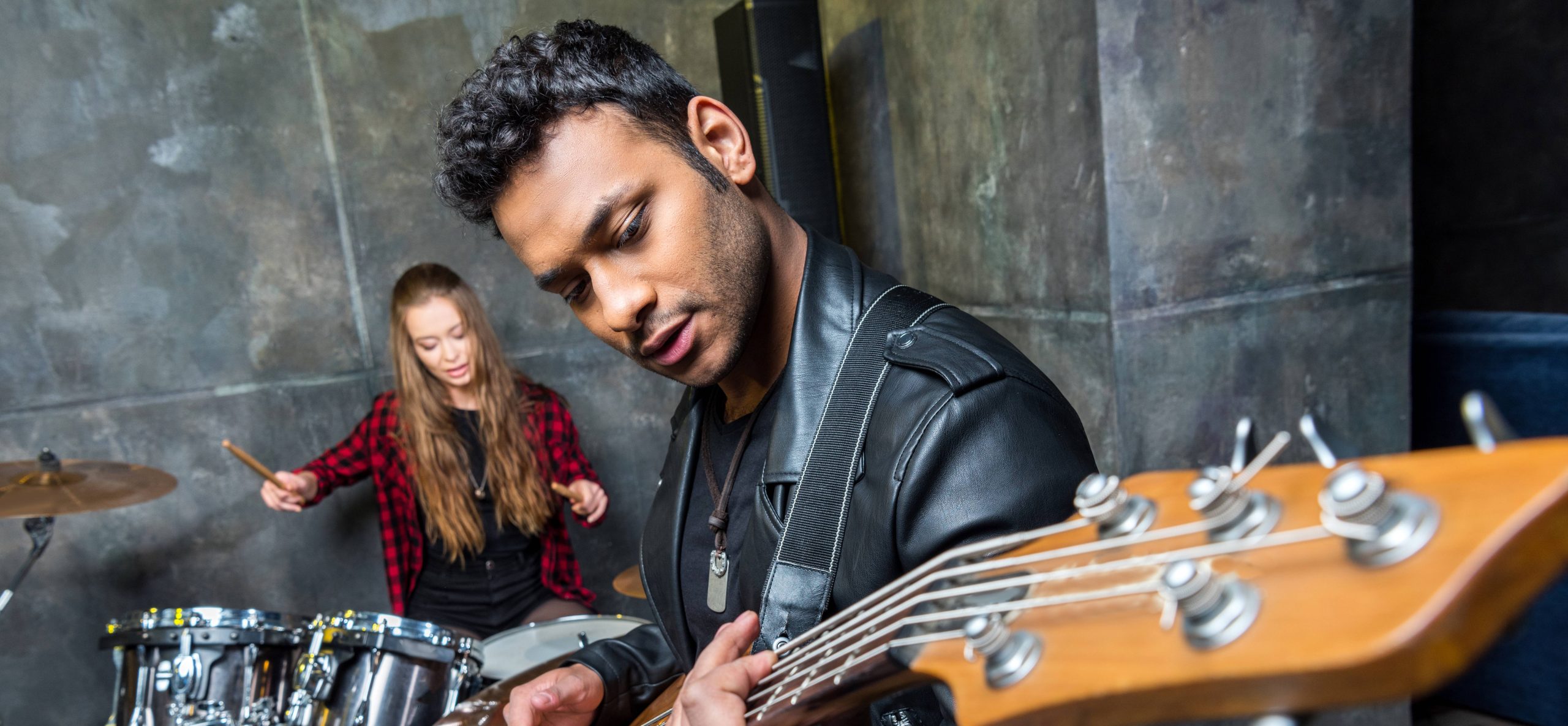The rise of virtual concerts has been nothing short of revolutionary for the music industry. With advancements in technology, audiences can now enjoy a live concert experience from the comfort of their own homes, and musicians can reach new audiences around the world without leaving their studios.
In this article, we will explore the future of virtual concerts for musicians and audiences in the digital age. We will look at advancements in technology, opportunities for musicians, monetization strategies, and the impact of virtual concerts on the music industry as a whole.
Current State of Virtual Concert Technology
Virtual concerts have come a long way in recent years, thanks to advancements in technology. With the help of high-definition video and audio streaming, virtual concerts can now provide audiences with an immersive experience that rivals that of a live concert. From high-quality video and sound to interactive features such as chat rooms and virtual meet-and-greets, technology has made it possible for audiences to feel like they’re right there in the front row.
One of the most important advancements in virtual concert technology is the use of high-definition video and audio streaming. This allows the audience to see and hear the concert as if they were there in person. The use of multiple camera angles and close-ups provides an even more immersive experience for the audience. Interactive features such as chat rooms and virtual meet-and-greets also enhance the virtual concert experience by allowing the audience members to connect with each other and with the performers.
Developments in Virtual Concert Technology
The future of virtual concerts looks even more exciting, with new technologies on the horizon that will further enhance the virtual concert experience. One such technology is the use of virtual and augmented reality, which will allow the audience to feel as if they are truly in the concert venue. Additionally, the use of live-streaming platforms and interactive features will continue to evolve and improve, making virtual concerts even more engaging and interactive.
Virtual and augmented reality technology will take the virtual concert experience to the next level. By wearing VR or AR headsets, the audience will be able to feel as if they are inside the concert venue, with the performers right in front of them. This technology will also allow for more interactive elements, such as the ability to walk around the virtual concert venue and explore different areas.
Another area of future development is in the use of live-streaming platforms and interactive features. Live-streaming platforms such as YouTube and Facebook Live have become increasingly popular for virtual concerts, but there is still room for improvement. In the future, we can expect to see more interactive features such as virtual reality integration, real-time polls, and interactive chat rooms.
The Future of Virtual Concerts
Virtual concerts not only provide audiences with a convenient and immersive concert experience, but they also offer new opportunities for musicians. With virtual concerts, musicians can reach new audiences around the world, regardless of location. Virtual concerts can also provide a new revenue stream for musicians, as they can monetize their performances through ticket sales, merchandise, and other means.
The internet has made it possible for musicians to reach a global audience, and virtual concerts take advantage of this by allowing musicians to perform for audiences around the world without having to travel. This can be especially beneficial for independent musicians who may not have the resources to tour extensively. Virtual concerts can also provide a new revenue stream for musicians who may have been impacted by the decline of physical album sales.
Democratizing Access to Live Music
Virtual concerts also have the potential to democratize access to live music for audiences around the world. With virtual concerts, audiences in remote or underserved areas can enjoy live music without having to travel long distances. Additionally, virtual concerts can be more accessible to people with disabilities, who may have difficulty attending live concerts.
The Role of Social Media in Virtual Concerts
Social media platforms such as Facebook, Instagram, and TikTok have become increasingly popular for promoting and streaming virtual concerts. They have become an essential tool for musicians to reach and engage with their audiences. Artists can use social media to promote their virtual concerts, interact with fans, and even sell tickets and merchandise.
Social media platforms have also enabled musicians to stream their concerts live, making it easy for fans to watch from anywhere in the world. This has led to an increase in the number of virtual concerts and has made it easier for musicians to reach new audiences and distribute their live performances.
Virtual Concerts and Artist-Fan Engagement
Virtual concerts are changing the way artists and fans interact and are providing new opportunities for artists to engage with their fans in ways that were not possible with traditional live concerts. Virtual concerts allow artists to interact with fans through chat rooms and virtual meet-and-greets, and to provide exclusive content such as behind-the-scenes footage and Q&A sessions.
Additionally, virtual concerts allow for more personalized experiences, such as virtual VIP packages that provide fans with special access to the artist. These new opportunities for engagement are helping to build stronger relationships between artists and fans and are providing new revenue streams for musicians.
Virtual Concert Ticketing and Pricing
Virtual concert tickets are sold and priced in various ways, and this may change in the future. Currently, tickets for virtual concerts are sold in a similar way to traditional live concert tickets, with prices determined by the artist or venue. However, as virtual concerts become more popular, new ticketing and pricing models are emerging.
One example is dynamic pricing, where ticket prices change based on demand. Another model is the use of subscription-based models, where fans pay a monthly or annual fee for access to all the artist’s virtual concerts. These new models have the potential to change the way virtual concert tickets are sold and priced and could provide new revenue streams for musicians and concert venues.
Monetization Opportunities for Musicians
As virtual concerts become more popular, monetization opportunities for musicians are increasing. Virtual concerts provide new ways for musicians to generate revenue through ticket sales, merchandise, and other means.
Let’s explore some of the strategies that musicians can use to make the most of their virtual concerts. From selling virtual concert tickets to merchandise and more, here are a few of the ways that musicians can monetize their virtual concert performances and make a profit.
Traditional Monetization Methods
Musicians can monetize their virtual concerts in a variety of ways. One of the most traditional ways is through ticket sales for virtual concerts. Additionally, musicians can sell merchandise such as t-shirts, albums, and other items to their audience during the concert.
Innovative Monetization Strategies
Musicians can also monetize their virtual concerts through more innovative strategies, such as sponsorships, brand partnerships, and crowdfunding. Musicians can use interactive features during virtual concerts, such as virtual meet-and-greets, to engage with their audiences and further monetize their performances as well.
Monetization of Virtual Concerts
Monetizing virtual concerts is different from traditional live concerts, and it can benefit the artist in many ways. Virtual concerts provide more opportunities for monetization, such as on-demand viewing, which allows audiences to purchase access to the concert after it has taken place. Additionally, virtual concerts can provide opportunities for merchandise sales, sponsorships, and other monetization options that may not be available at live concerts.
Final Thoughts
Virtual concerts are the future of the music industry, providing audiences with a convenient and immersive concert experience, and musicians with opportunities to reach wider audiences and monetize their performances in new ways.
As technology continues to advance, virtual concerts will become even more prevalent and important in the music industry. This technology will also have applications for other events such as live sports and business conferences.
Want to Reach a Global Audience?
We invite you to join us in embracing the future of virtual concerts, and if you are a musician or a band, take advantage of our service to distribute your music and monetize your music online. We offer various plans to help you distribute your music on all the major platforms, including a free plan so that you can get started right away. Check out Novecore to sign up.




